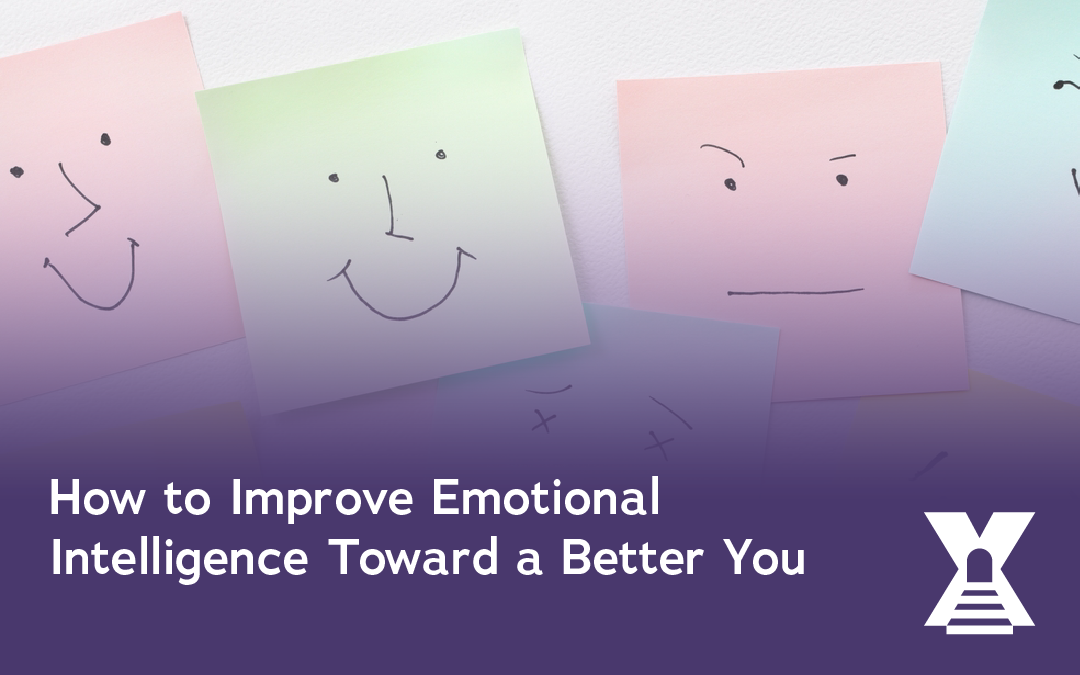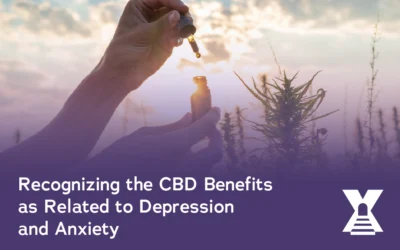You’ve likely felt that tug sometimes. That feeling where you wish you understood your own reactions better, or could connect more easily with the people around you. Many of us are looking for ways to genuinely improve emotional intelligence, not just for big moments, but for everyday life too. Understanding human behavior—why people do what they do—is something many of us strive for. It’s a journey of self-discovery too. It’s a common goal. It starts with you. Get better at handling your feelings and understanding others’ – it’ll change your life for the better. Seriously. This includes feeling better mentally.
Life and work improve when you improve your emotional intelligence. Marketers and influencers work hard to connect with people on a personal level. Improving customer experiences depends on this close relationship; it’s a major responsibility. They must make sure people have a good experience. Okay, let’s talk about the meaning of this and how you can grow emotionally smarter.

Inside you’ll find:
- What Exactly Is This Emotional Intelligence Thing?
- Improving your EQ? Think about it: this has weight.
- Your Action Plan to Improve Emotional Intelligence
- Roadblocks You Might Hit (And How to Get Past Them)
- EQ: The Secret Weapon for Influencers and Marketers
- Conclusion
What Exactly Is This Emotional Intelligence Thing?
So, what are we discussing when we mention “emotional intelligence” or EQ? Consider it being smart about feelings – both your own and those of others. Managing your emotions isn’t about being robotic or overly sensitive. When you’re in tune with yourself, you make smarter decisions and form stronger bonds—think of it like this: Trust and closeness grow when you’re clear about what you want. It’s all connected.
Experts often break emotional intelligence down into a few key areas, which are fundamental intelligence skills. According to researchers like Daniel Goleman, who popularized the concept, these are the main parts. Figuring out these pieces shows you what to work on to grow your emotional smarts.
First, there’s self-awareness. Knowing yourself—your feelings, skills, and flaws—is important. Knowing your feelings, what causes them, and how they affect what you do and choose is what self-awareness is all about. It’s your personal inner GPS. For example, if you feel anxious before a presentation, understanding why that anxiety exists helps you manage it better.
Self-management—that’s what we call self-regulation—comes next. Once you are aware of your emotions, this is about handling them in healthy ways. Stress management, impulse control, and flexibility—these are key to succeeding in any field. Effective strategies depend on them.

Then there’s social awareness. This largely involves empathy – the ability to understand what others are feeling. It’s about picking up on emotional cues, feeling comfortable socially, and recognizing the power dynamics in a group or organization, allowing you to sense what others need or want.
The last thing to consider is how you’ll handle relationships. Emotional intelligence—understanding your feelings and the feelings of those you interact with—is key to successful interactions. Consider this. how you react depends on how you understand what is going on. It includes clear communication, inspiring others, working well in teams, and managing conflict; it’s where all the other parts of EQ come together to build strong bonds and achieve a positive impact.
Emotional intelligence: Why should you bother to improve it?
Thinking, “This sounds great, but how does it help me?” is completely understandable. Boosting your emotional intelligence can seriously upgrade your life. Forget fluffy soft skills. Level up your mind and career. Plus, feel fantastic!
Reflect on your day. Higher EQ can lead to less stress because you are better at managing difficult emotions. Family and friends? Your bonds will deepen. This happens because improved communication helps you understand each other better. You’ll likely make better decisions too, not just reacting on pure emotion but considering things more clearly.
A high level of emotional intelligence—understanding and managing your feelings and relating to others—can make a huge difference in how well you do in your career. Knowing why people act the way they do—their feelings and goals—really simplifies working together. Studies, like those highlighted by Harvard Business School and frequently discussed in the Harvard Business Review, often show that people with high EQ tend to be better leaders and performers. Workplace challenges? Feedback? I’m ready. Resourceful people who inspire their teams are a valuable asset; this benefits a company’s strategic direction. Resources like HBS Online often feature courses that touch upon these essential skills.
This boost in performance? It benefits a wide range of users; think financial analysts and tech companies. It’s quite helpful. Organizational change needs strong leadership. Leaders who understand emotions are especially good at leading this change. Good teamwork and clear communication of complex financial data are improved by emotional intelligence, even when high precision is needed.
For influencers and marketers, the benefits are even more direct as their work is centered on connection. You can’t market effectively without understanding your audience’s emotional landscape. Their needs, wants—and what truly excites them—are all important things to consider. Consider their reasons. What’s their motivation? What are their goals? This is how you create a loyal following: build a strong brand. For example, if your audience is environmentally conscious, highlight sustainable practices in your marketing. Knowing this is key; it helps make customers happy and builds trust—things any business needs. Dealing with public comments, even the negative ones, becomes easier and you’ll make a better impression.
Your Action Plan to Improve Emotional Intelligence

Alright, so you’re on board and ready to make some changes. The good news is that emotional intelligence isn’t fixed. You can definitely improve it with practice and intention; think of it like building a muscle. Level up your emotional intelligence? Here’s how.
Start by Looking Inward: Boosting Self-Awareness
This is the foundation. If you don’t understand what’s going on inside you, it’s tough to manage it or understand others. Becoming more self-aware means tuning into your feelings and thoughts without judgment, a trait often seen in those with high emotional intelligence.
One great way to start is by journaling. Spend a few minutes each day writing down how you felt in different situations: What emotions arose? I wonder what caused those feelings? My reaction? It was… interesting. You’ll start to see patterns in your emotional reactions. Consider what an emotionally intelligent response might have looked like in those situations.
Ask people you trust for their honest feedback—it’s incredibly valuable. Many successful companies use this simple method in their training. Job skills training is provided to workers. Their professional skills improve. It might feel a little weird, but asking people you know how your reactions seem to them can be really helpful. To improve your emotional intelligence, consider these questions: “Do I handle stress well?” and “How do others perceive my frustration?” Self-reflection is key.
Figure out what makes you tick emotionally. What situations, people, or comments reliably set you off or make you feel strong emotions? Identify your triggers. Then, prepare for them, manage your reactions to them, or avoid them completely. Conversations become richer and more useful; everyone benefits from the improved interaction. Consider this: knowing your allergies helps you avoid those foods, right? It’s the same idea.
Learning to Manage Your Reactions: Self-Regulation
Once you are more aware of your emotions, the next step is managing them. It’s not about hiding your feelings; it’s about picking your reaction. It’s about that little pause between feeling something and acting on it, a core part of having high emotional skills.
Practice the pause. When you feel a strong emotion like anger or anxiety welling up, take a moment before you speak or act. A few deep breaths – perhaps trying box breathing or the 4-7-8 technique – can make a huge difference, calming your nervous system. This simple habit can prevent a lot of regret and is one of the management essentials for personal effectiveness.
Managing stress is important for your mental well-being and good decision-making; find healthy ways to do it. Regular exercise, spending time in nature, hobbies, or mindfulness meditation are all great options. Prevent stress from taking over. Busy jobs? High-pressure careers in global business or sustainable investing? Time for a break? These activities are perfect. You need this.

Try to stay adaptable. Stuff happens. Plans change. Tech is a fast-moving world; things change constantly. New developments appear constantly. Rolling with the punches and adjusting your plans is a big part of managing yourself. Organizational renewal and leading change? Adaptability is key; the capacity to recover from adversity is just as vital. Without them, you’re sunk.
Figuring out what makes others tick. Learning to understand others better: that’s what growing empathy is all about.
Try to see things from their point of view. Really get a feel for what they’re going through. That’s empathy. Solid relationships and strong social skills go hand-in-hand; one supports the other. Boost your empathy—it’ll sharpen your social skills!
One of the most important skills here is active listening. This means when someone is talking, you are fully focused on them. You’re not just waiting for your turn to speak or thinking about your reply. Ask clarifying questions, summarize what they said to ensure you understand, and pay attention to their underlying message. Reflecting their feelings by saying “It sounds like you’re feeling…” can also show deep empathy.
Put yourself in someone else’s shoes. Empathy matters, regardless of whether you concur. Consider their feelings and reasoning. Ask yourself: What might they be feeling? Why might they be behaving this way based on their experiences or situation? This cognitive empathy, coupled with emotional empathy (feeling with them), can transform your interactions and is fundamental to truly transforming customer experiences.
Pay attention to nonverbal cues as a lot of communication is unspoken. Notice people’s body language, tone of voice, and facial expressions. Body language speaks volumes! Posture, hand movements, even tiny facial expressions—these all tell you more than words ever could about what someone’s really feeling. Developing this aspect of social awareness is part of what many HBS Online courses might touch upon when discussing leadership principles.
Building Stronger Connections: Relationship Skills
This is where all the pieces of emotional intelligence come together to help you interact positively and build healthy bonds. Let your feelings be your guide when you talk to others; it makes a big difference. Mastering negotiations and building great teams? Relationship skills are the foundation.
Focus on communicating clearly and respectfully. Share your thoughts and feelings openly, but do it in a way that respects the other person. Using “I” statements, like “I feel frustrated when…” instead of accusatory “You always make me…” language, can make a big difference in how your message is received. Leading a group depends on this method.
Learn to handle disagreements constructively because conflict is a natural part of any relationship. We’ve got a problem to solve, and a relationship to nurture—both are equally vital. A strong bond is worth more than any quick fix. This means listening to the other side, looking for common ground, and being willing to compromise—skills vital in both personal life and for effective business strategy execution.

If you are in a position to lead or influence others, practice motivating and guiding them positively. You have to grasp their reasoning; it’s a fundamental aspect of the situation. Provide a roadmap for success and offer consistent help along the way; this will make all the difference. Success depends on it. It’s all about community for influencers—a real connection with their audience, not just numbers. Positive attitudes fuel team success. Good leaders nurture both. They work really well together. Think of it like tending a garden – you need to nurture it. A productive and engaged workforce results. Consider mentorship programs and regular feedback sessions to show appreciation.
Get comfortable with giving and receiving feedback, as feedback is a gift for growth. Learn to offer constructive criticism kindly and specifically, perhaps using models like SBI (Situation-Behavior-Impact) taught in corporate learning programs. When you receive feedback, try to listen openly, even if it’s hard to hear, and look for the kernel of truth in it. Personal growth and company-wide improvement are directly linked to an open environment, especially for those in the fast-paced world of digital innovation. Consider how Google fosters innovation through open communication—it’s a perfect example. Better ideas flow more easily, progress speeds up, and the whole organization becomes more successful.
A simple way to remember these actions is through a quick overview:
| EQ Component | Key Action Example | Primary Benefit |
|---|---|---|
| Self-Awareness | Daily journaling on emotions and triggers. | Learn your own patterns; notice how you react emotionally. |
| Self-Regulation | Practicing the “pause” and deep breathing before reacting. | Think before you act, chill out, and be more considerate. |
| Social Awareness | Engaging in active listening during conversations. | Develop empathy. Figure out how people feel and what they mean, even if it’s not explicitly stated. For example, consider body language and tone of voice to better understand the unspoken messages. |
| Relationship Management | Communicating assertively and respectfully, especially during conflict. | Trust is the foundation. Resolve conflicts fairly. Foster deeper connections. Our method? Improving things. Simple as that. We aim higher. |
Roadblocks You Might Hit (And How to Get Past Them)
Let’s be realistic: deciding to improve emotional intelligence is one thing, but actually doing it can present challenges. It takes time; change doesn’t happen instantly. Knowing the things that might slow you down lets you get ready and jump over those obstacles.
Old habits can be really hard to break, as they are deeply ingrained. If you’ve reacted certain ways for years, it takes conscious effort and repetition to change those patterns. Go easy on yourself, and celebrate those small wins along the way. Consistency trumps perfection when building emotional intelligence.

Feeling your emotions can be tough, especially if you’re used to stuffing down sadness, vulnerability, or anger. These might feel overwhelming at first. Don’t rush. Self-compassion matters. Talking to a trusted friend or a professional can help you process these feelings in a safe space, supporting your mental health journey.
You might also find it challenging when you are trying to use your growing EQ skills with people who have lower emotional intelligence. They might not respond in the ways you hope, which can be frustrating. Remember, you can only control your own actions and reactions; focus on your own growth and on modeling emotionally intelligent behavior. Healthy boundaries are super important when working with others. This is especially true if you’re leading a team or managing change.
EQ: The Secret Weapon for Influencers and Marketers
If you are an influencer or a marketer, improving your emotional intelligence isn’t just a nice-to-have; it’s a powerful asset. Building rapport and communicating effectively are fundamental aspects of this position; they’re not just nice-to-haves, but necessities. That’s the main focus. You’ll be a more effective and genuine worker with high emotional intelligence; this will positively impact your work.
When you understand your own emotional drivers, you can create content that is more genuine and resonates more deeply with your audience. People love genuine things. People can spot sincerity and genuine care. Loyal customers are the result of good marketing strategies.
Understanding what your audience wants and needs—their hopes and frustrations—is the heart of empathy. Marketing success depends entirely on how well you understand the people you’re trying to reach. Consider their needs, wants, and motivations. Tailor your products and messaging to their specific needs; this is crucial for success. Knowing this helps you create a game-changing plan if you spot needs nobody else has seen. A close connection transforms customer interactions; they go from just business to something personal.
Brand communities need strong relationships to really take off. Think about it—the better you know your customers, the better you can serve them. It’s a sure thing! This means using online platforms effectively to connect with and grow your audience. Think of Instagram, TikTok, or even a simple blog – these are all avenues for building that community. You can handle comments, both positive and negative, with grace. Foster open communication and show your followers you care. Community building? Lasting business success? This is how you get it. It’s that simple. Seriously. Happy customers are loyal customers. Empathy—understanding users—is crucial for design. This approach delivers both: fun content *and* services that really help.
Think about the influencers or brands you admire most. They probably understand these emotional skills pretty well. They connect, they listen, and they seem to “get” their audience, often because they prioritize social awareness. That’s emotional intelligence in action, helping them navigate the dynamic world of digital marketing strategy and potentially even when launching tech ventures that require strong user connection from day one.
Companies are showing their true selves by acting ethically and going green. This allows marketers to honestly share their company’s values. Figuring out public opinion on climate change means showing you understand their perspective and talking to them in a way they can grasp. Even those working with business analytics can use EQ to interpret data with a human-centric view, understanding the ‘why’ behind the numbers, especially in customer feedback from a support portal or social media. Accessing resources for development, such as HBS Online courses, might involve looking through an open courses mega listing or navigating the main content of educational platforms to find relevant business essentials and leadership principles. Corporate training programs are booming! Financial analysis and alternative investing benefit greatly from emotional intelligence; this is a key skill taught in these programs.

Conclusion
Focusing on emotional intelligence pays off big time. Think of it as an investment in yourself; the returns are substantial and lasting. Gaining self-understanding is easier. Better relationships with family and friends are within your reach! Develop better emotional control; connect with others on a deeper level. Building these skills takes work and some honest reflection, but it’s worth it—everything gets better. Your personal well-being, mental health, career, and ability to help others will all benefit.
Progress, not perfection—that’s the key. Boosting your emotional intelligence is the goal. Emotional intelligence grows as you pay attention to your feelings and the feelings of others. Small steps make a big difference. Marketers and influencers who improve their emotional intelligence see huge benefits. Better relationships with your audience, smarter business moves, and a lasting, positive effect? Totally achievable.




0 Comments